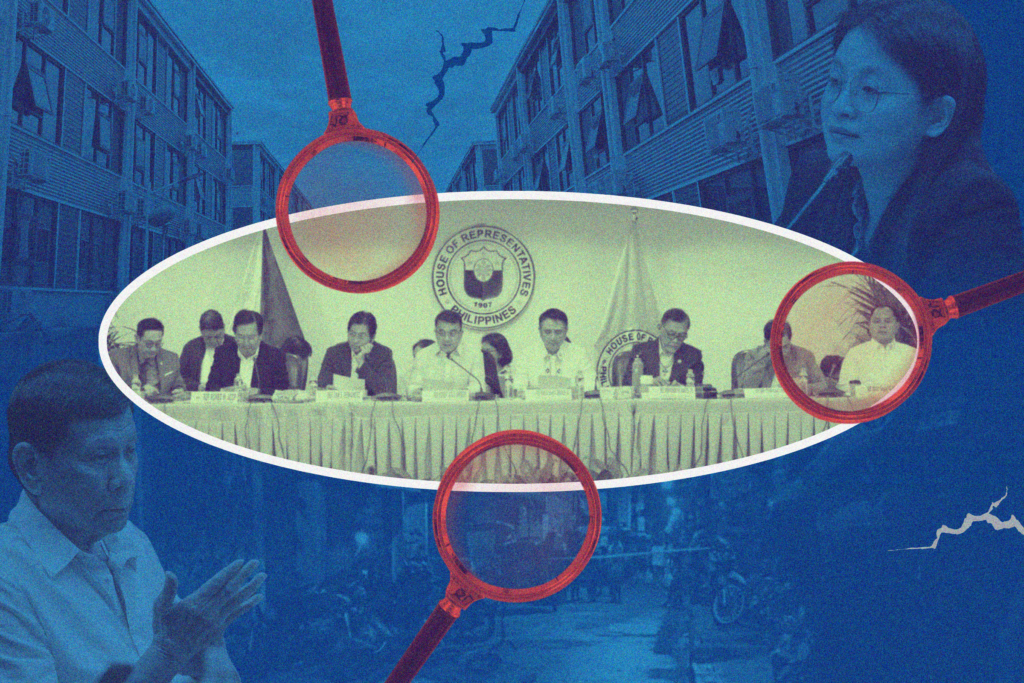Quad comm revelations: Rappler makes sense of findings

CHEERS to Rappler for a podcast which made sense of the findings of the “Quad comm” – the four house committees which set out to jointly probe the interrelated aspects of Rodrigo Duterte’s “drug war,” the criminal activities of the Philippine Offshore Gaming Operators (POGOs) and the continuing drug trade. The four include Dangerous Drugs, Public Order and Safety, Human Rights, and Public Accounts. So far, there have been 10 hearings since August 16.
Rappler’s discussion was hosted by John Nery and featured two guests who have been following the hearings closely: human rights lawyer Theodore “Ted” Te and journalist Inday Espina Varona. The discussion identified the weaknesses of the process of interrogation by the four committees, the failure to draw out more concrete details given the vagueness of words used by witnesses or to flag testimonies that were based on hearsay. More important, Te and Varona agreed that the hearings revealed how the government embedded criminal activities in their operations during the Duterte administration.
So far, witnesses have included persons serving prison time, former and current police officers who went as far as naming colleagues engaged in various crimes as part of the drug war operations.
The information given so far has not identified who ordered or instigated the killings. Duterte has not been implicated. But Police Lt. Col. Jovie Espenido, who was responsible for many big-ticket anti-drug operations including the killing of mayors, did say that the orders he and other police received was to “neutralize” – meaning kill drug suspects.
Failure of news treatment
The Quad comm proceedings were tracked by all news organizations. They reported testimonies made in every hearing, including shocking revelations about highly-placed police officers who admitted to the assassination plot for would-be whistleblower Wesley Barayuga, then board secretary of the Philippine Charity Sweepstakes Office. But news accounts failed to establish a narrative or to trace a pattern in the surfeit of information gained from one hearing to the next, or even to the use of violence in Duterte’s war on drugs.
Reporters presented the breadth of concerns and added more names to the list of those involved in criminal activities. But the news treatment employed – recording testimonies made in every session — did not connect the dots. The reports did not show how the separate actions of different state agents were all linked together, how the different testimonies painted the big picture of interconnected crimes.
Detecting the pattern
In his podcast “In the Public Square” last October 16, Nery sat down with Te and Varona, who agreed that so far each witness has only claimed to have followed orders or to have learned about crucial information from a colleague.
While critical of some aspects of the probe, Te and Varona acknowledge its importance. Both agreed that the testimonies show how the Duterte government “was run as a criminal syndicate,” with “the fear, the killings, the pivot to China” and “corruption in all levels of government” standing out.
Varona said that more concrete details need to come to light. The credibility of witnesses has already been questioned by Duterte allies. She pointed out the probe has not fully examined how the different concerns may be related. The marathon hearings have focused on drug-related killings without checking the possible connection of the drug war to the POGOs. Recalling the pandemic, Varona suggested that the lockdowns might have enabled crime to thrive within the clandestine operations of POGOS, as drug money needed to be funneled somewhere.
Te compared the hearings to a “legal and political audit” of the Duterte administration, which he said could have been done much earlier. Te acknowledged how the country’s justice system moves slowly in holding criminals accountable. So there is some merit in holding these hearings now, if indeed the ultimate aim is prosecution. He stressed that some of those spearheading the hearings used to “enable” Duterte’s brand of violence. But it remains important for the House to establish the truth so that government can restore public trust in its institutions.
Te expects a comprehensive report on the probe findings, which is included in the House resolution creating the Quad comm. Media should follow up on its release.
So far, the House has not said when it will end the hearings. Media should keep watch of the time spent on this investigation. Journalists must find ways of presenting the findings in a logical framework, holding close to the premise of the Quad comm – that the concerns are all interrelated. The crimes exposed must be tied together somehow.
The process of interrogation should keep this in mind. And so should the media.
Leave a Reply